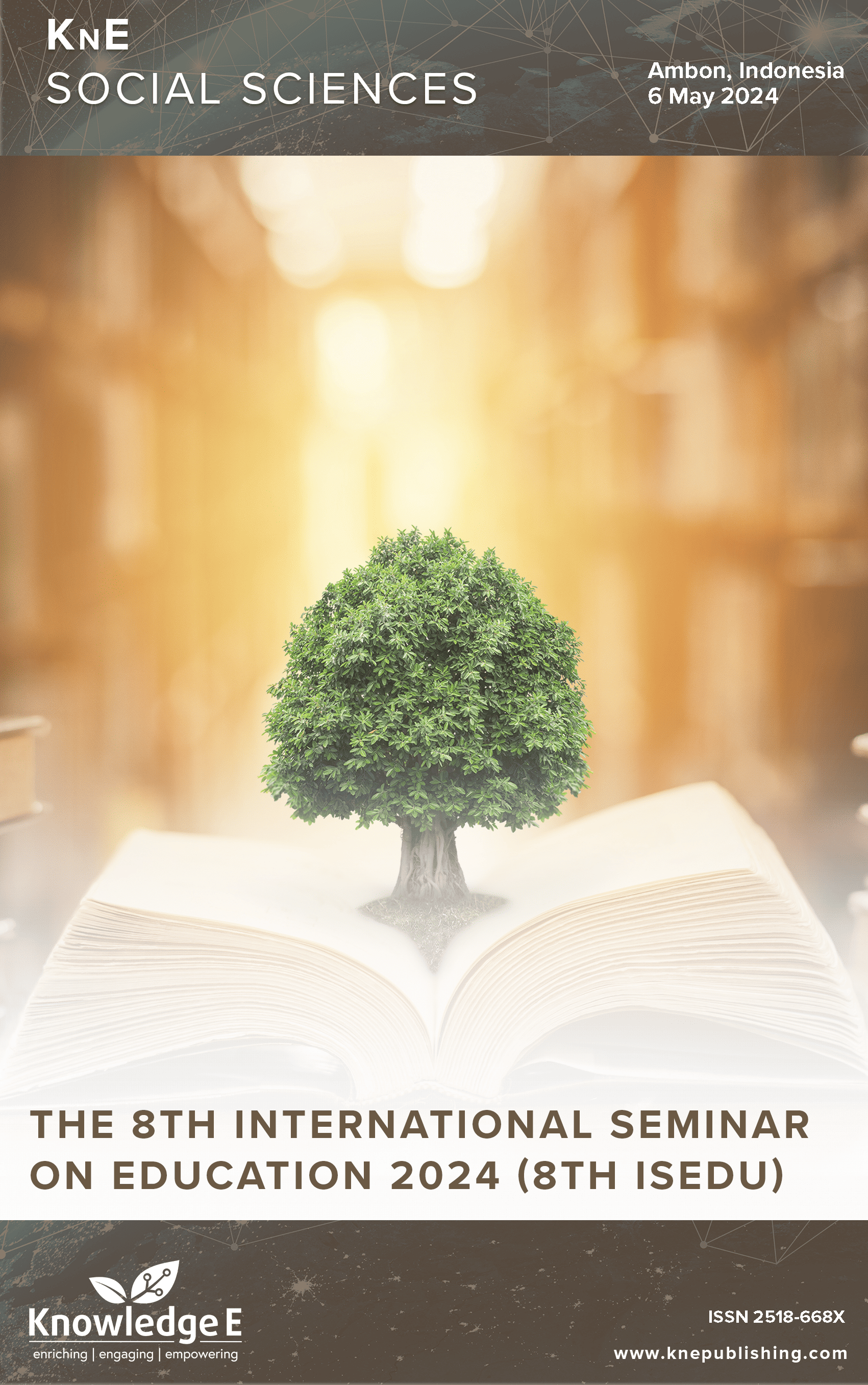Orang Haria and Marriage Customs: The Reality of Socio-cultural Order in the Maluku Archipelago
DOI:
https://doi.org/10.18502/kss.v9i31.17565Abstract
Maluku is an archipelagic region consisting of both large and small islands surrounded by the ocean. The community interaction dynamics on and between these islands are shaped by the knowledge or mindsets based on each community’s cultural background or traditional customs, which are institutionalized within every individual and within the collective community of its adherents. Specifically, marriage customs, whether it involves payment of a dowry or traditional legitimization, integrates two individuals with different identity backgrounds into the social environment on a micro-scale (family/mataruma) and a macro scale (village/community). The people of Haria identify themselves as part of Negeri Haria, one of the traditional villages on Saparua Island, Maluku, which has meaningful marriage traditions aimed at establishing social and cultural order. These marriage customs signal to family members and ancestors about the marriage events of descendants, visible from the traditional process of introducing a wife, whether from within or outside Negeri Haria, and the obligations of a man who marries and takes a daughter from Negeri Haria to merge with his identity (family/original village). The various conditions include kain berkat (negeri wealth) meja kaweng, marriage dowry payment, and hatu mata. Additionally, there are traditions of changing the surname of a child born out of wedlock (child reallocation) or adopting someone else’s anak (arken anak). The young generation of Negeri Haria, generally needs more precise knowledge about marriage customs to form social order for newly established households. This writing aims to reveal the objective reality of the community’s oral traditions in written form, preserved for cultural conservation purposes. The reality was discovered using qualitative research, such as observation and interview methods. Hence, efforts to preserve the cultural values of this indigenous community involve tracing stories from traditional leaders who possess the knowledge and perform the ritual processes of marriage customs.
Keywords: Orang Haria, marriage customs, socio-cultural regularities
References
Nirahua SEM, Kuahaty S. Authority of the village in Maluku as indigenous people in the management of natural resources in the sea customary rights. Int J Sci Res Publ. 2016;6(3):248–55.
Titaley E, Watloly A. The cultural values of the island’s indigenous people. Sosiohumaniora. 2021;23(3):313. DOI: https://doi.org/10.24198/sosiohumaniora.v23i3.28235
Pless NM, Maak T. Building an inclusive diversity culture: Principles, processes and practice. J Bus Ethics. 2004;54(2):129–47. DOI: https://doi.org/10.1007/s10551-004-9465-8
Nofarof Hasudungan A, Dewi Sartika L. “The implementation of multicultural value of pela gandong local wisdom in education.” Proceeding 5th Int Conf Educ. 2019;5(2): 09–17. https://doi.org/10.17501/24246700.2019.5202. DOI: https://doi.org/10.17501/24246700.2019.5202
Yates JF, De Oliveira S. Culture and decision making. Cult Decis Mak. 2020;136:106– 18. [Online]. DOI: https://doi.org/10.1016/j.obhdp.2016.05.003
Koce Matitaputty J, Syamsuddin H, Maryani E, Ali M. Contributions of sasi to sustainable living of Saparua indigenous community, Indonesia. Adv Soc Sci Educ Humanit Res. 2018;251:685–91. DOI: https://doi.org/10.2991/acec-18.2018.153
Pallathadka LK, Pallathadka H, Devi MS. A Review of marriage rituals in different cultures. Integr J Res Arts Humanit. 2022;2(5):152–60. DOI: https://doi.org/10.55544/ijrah.2.5.24
Sadiani S. Duit turus: A solution to conflicts in Dayak traditional marriages. Utopía Prax Latinoam. 2020;25(6):249–56.
Nifmaskossu R. “Tindak tutur direktif upacara perkawinan adat masyarakat watmuri.” J Pendidik Bhs dan Sastra Indones. 2019;8(1):37–43. [Online]. Available: https://journal.unnes.ac.id/sju/index.php/jpbsi/article/view/24018
Rosmiaty R, Abdollah A, Lestaluhu R. The process of wedding ceremony in Tulehu Village, Central Moluccas (A Historical Analysis). Tamaddun. 2016;15(2):81–8. DOI: https://doi.org/10.33096/tamaddun.v15i2.42

